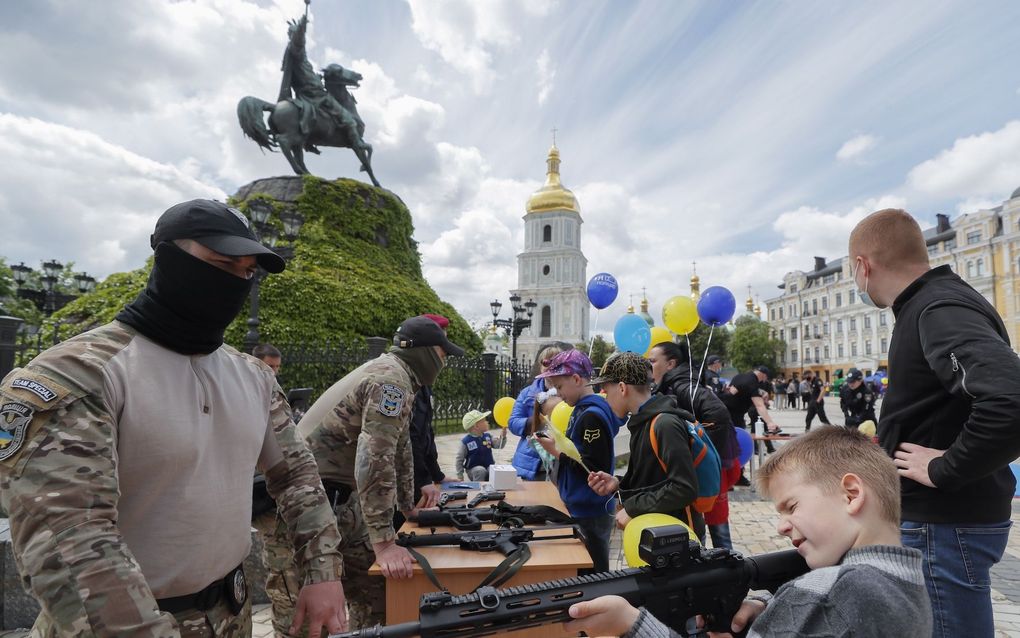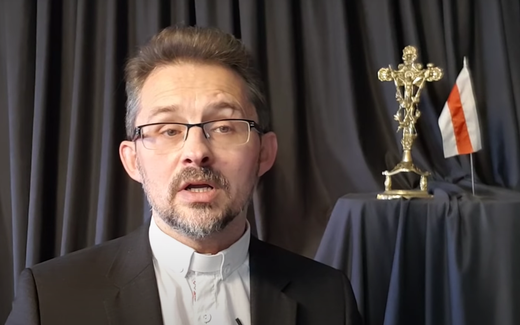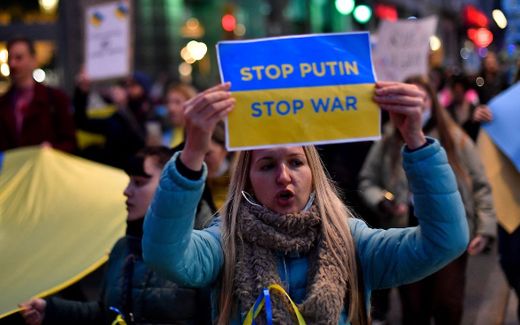German Mennonites against sending weapons to Ukraine

Using weapons is a habit. A bad habit, pacifists say. Photo EPA, Sergey Dolzhenko
Central Europe
The Mennonite Community in Germany is against sending weapons to Ukraine. The pacifist Christians don’t believe that weapons protect against death and destruction.
The evangelical press agency Idea reports that the vice-president of the Arbeitsgemeinschaft Mennonitischer Gemeinden (AMG), Prof. Fernando Enns, thinks that currently, a pacifist position is necessary for Ukraine. He does not see any justification for war in the Eastern European country now.
He says that stepping into a Cold War-like deterrence mode would not produce any security at all. On the contrary, it would lead to an escalation in his opinion. Therefore, he thinks delivering weapons would not end the war but make it worse.
Prof. Enns admits that he cannot protect Ukrainian citizens. “We are afraid as well. But our faith in the power of love is stronger.” And that love brings him to his non-violence stance.
Neither would the Mennonite Community agree with investments in the Bundeswehr, the German army because this is against the witness of Jesus Christ, Enns says. Federal Chancellor Olaf Scholz has announced to invest 100 billion Euros in the defence forces only this year. And the coming years, there is a lot to come.
The better solution, according to Enns, would be to pray for Ukraine and Russia following Psalm 85,8: God the Lord will speak peace to his people, to his saints; but let them not turn back to folly.

Besides praying for peace, would it be helpful to help refugees. Another thing would be to keep in contact with as many friends in Ukraine as possible.
Long tradition of pacifism
AMG is a community consisting of 54 congregations with 5,700 members. Their history goes back to the Ana-Baptist leader Menno Simons (1496-1561) from the Low Countries. Their community also has ties with the Amish and other Ana-Baptist groups in North and South America and Russia.
The Mennonites have been known for their pacifist stance. During the war between Israel and Lebanon, Dr Fernando Enns said in the Dutch daily Reformatorisch Dagblad that the presence of weapons always would lead to violence. Many pacifists even doubt the legitimacy of self-defence since this might easily lead to escalation.
Protestants are moving
The former president of the Protestant Church in Germany (EKD), Margot Kässmann, agrees with her Mennonite colleague. In a column in a regional church bulletin Meine Kirchenzeitung, Mrs Kässmann refers to the fall of the Berlin Wall in 1989. The President of the East German parliament said then: “We reckoned with everything, but not with candles and prayers.” But that was it that brought down the Wall.
“Despite the army logic, I doubt that more weapons and armies create peace”, she writes. “Peace grows only with peaceful means.”
The position Kässmann takes is not strange in Germany. Since the Second World War, the German churches have always tended towards Christian pacifism. The Protestant church also opposed the Iraq war in 2003.
Earlier this week, the present EKD chairman, Annette Kurschus, took steps to agree with the delivery of weapons for Ukraine. Yet she is very reluctant, according to the church’s statement. “I go for diplomacy and probably a few weapons”, she said. But also: “Who am I to say in their face they have to use their ploughshares?”
A few weeks ago, the church was still against weapon deliveries by the German government. The church’s peace envoy, bishop Friedrich Kramer, criticised Berlin for giving weapons to Ukraine. “It is understandable, but I don’t think it is clever”, Kramer said.
Catholics agree
The Roman Catholic bishops in Germany expressed themselves favouring weapon deliveries to Ukraine this time. According to a declaration, the church leaders think that this is following the teaching of peace from the church.
Related Articles






